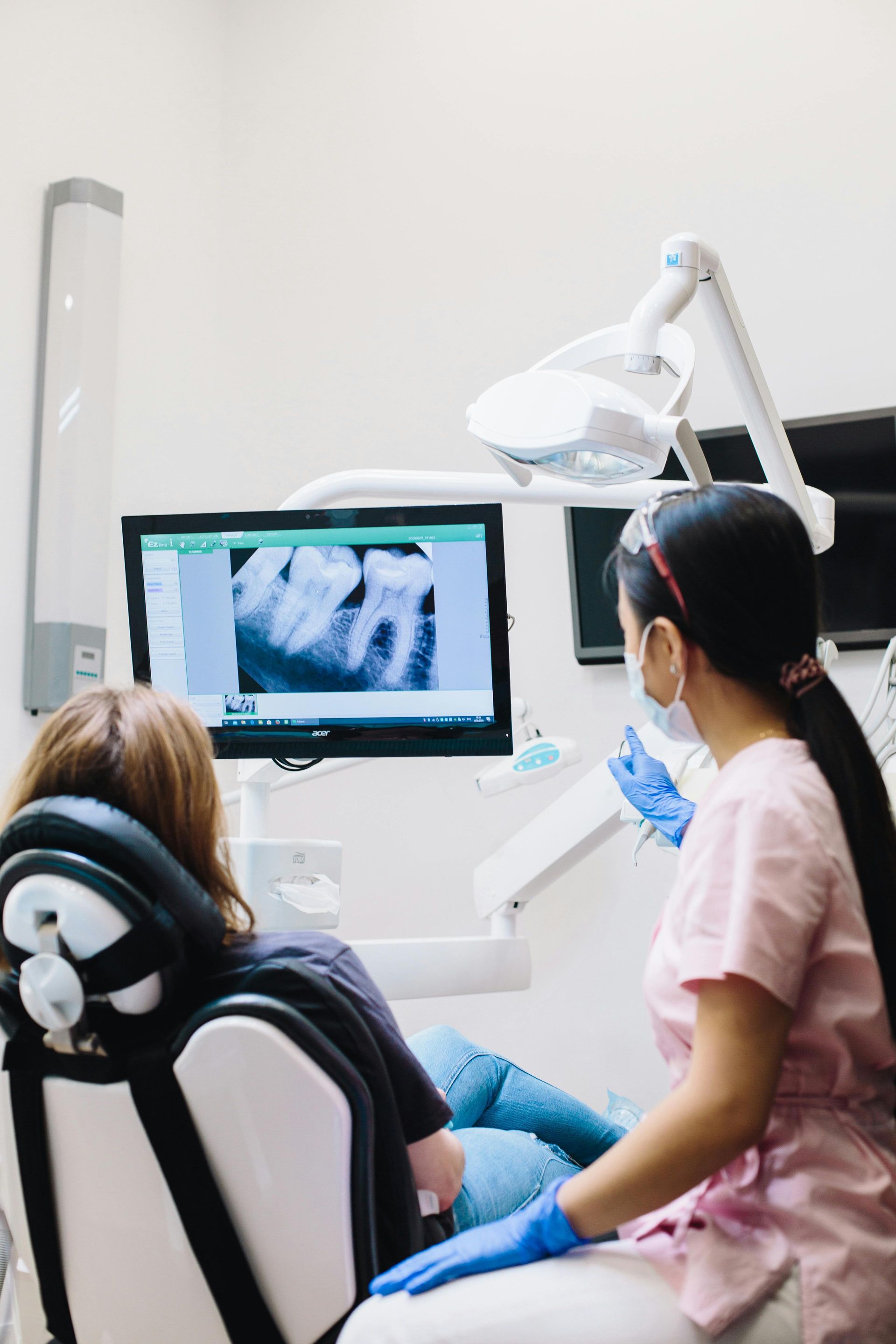Diabetes and Oral Health: The Mouth-to-Body Connection
When we think about diabetes, we often focus on how it affects blood sugar, heart health, or circulation. But did you know that diabetes also has a direct impact on your oral health? The relationship between your mouth and your body is closer than you might think—and maintaining healthy teeth and gums can actually help you manage your diabetes more effectively.

At Amaze Dental Kirkland, we believe that understanding the mouth-to-body connection is key to preventing complications and supporting your overall wellness.
How Diabetes Affects the Mouth
Diabetes affects your body’s ability to process glucose, commonly called sugar. When blood sugar levels are poorly controlled, it can weaken your immune system and reduce your body’s ability to fight bacteria and infection. This has a major impact on your mouth, where hundreds of species of bacteria naturally live.
Here are some of the most common oral health issues linked to diabetes:
1. Gum Disease (Periodontal Disease)
People with diabetes are at a much higher risk for gum disease. Gum disease is an infection of the gums and bone that hold your teeth in place. Elevated blood sugar levels create an environment where harmful bacteria thrive, leading to inflammation, bleeding gums, and eventually, bone loss around the teeth.
In fact, studies show that people with diabetes are two to three times more likely to develop periodontal disease than those without diabetes. In turn, severe gum disease can make it harder to control blood sugar levels, creating a cycle where each condition worsens the other.
2. Dry Mouth (Xerostomia)
High blood sugar levels can reduce saliva flow, leaving the mouth feeling dry and uncomfortable. Saliva plays an important role in washing away food particles and neutralizing acids produced by bacteria. When your mouth is dry, bacteria can multiply more easily, increasing the risk of cavities, bad breath, and mouth infections.
3. Oral Infections and Slow Healing
Diabetes can slow down your body’s healing process, including inside the mouth. This means that after dental procedures—or even minor cuts on your gums—healing may take longer than usual. People with diabetes are also more prone to fungal infections like thrush, which appears as white patches or redness on the tongue and inner cheeks.
4. Burning Mouth Syndrome
Some individuals with diabetes experience a burning sensation in the mouth, often caused by nerve changes or reduced saliva flow. This condition can make eating and speaking uncomfortable if not addressed.
The Two-Way Street: How Oral Health Affects Diabetes
The connection between diabetes and oral health isn’t one-sided. Poor oral health can actually make diabetes harder to manage. The inflammation caused by gum disease releases harmful bacteria and inflammatory substances into the bloodstream, which can raise blood sugar levels and worsen insulin resistance.
In other words, a healthy mouth supports a healthier body. By treating gum disease and keeping your mouth clean, you can help improve blood sugar control and reduce your risk of diabetes-related complications.
Signs to Watch For
If you have diabetes, it’s important to be aware of early warning signs that something may be wrong in your mouth. Contact your dentist if you notice any of the following:
- Red, swollen, or bleeding gums
- Persistent bad breath or a bad taste in your mouth
- Loose or shifting teeth
- Dry mouth or burning sensations
- White patches on your tongue or cheeks
- Delayed healing after dental treatment or injury
Catching problems early helps prevent them from becoming more serious—and can make a significant difference in your overall health.
Tips for Maintaining Oral Health with Diabetes
Keeping your mouth healthy is a vital part of managing diabetes. Here are some practical steps you can take:
- Brush and floss daily – Use a soft-bristled toothbrush and fluoride toothpaste at least twice a day. Floss once daily to remove plaque between teeth.
- Control your blood sugar – Work with your doctor to keep your glucose levels within a healthy range. Stable blood sugar helps reduce your risk of gum infections.
- Stay hydrated – Drink plenty of water to help relieve dry mouth and wash away bacteria.
- Avoid tobacco – Smoking increases your risk of gum disease and interferes with healing.
- Visit your dentist regularly – Schedule professional cleanings and exams at least twice a year—or more often if recommended.
- Share your medical information – Always let your dentist know if you have diabetes and what medications you take. This helps them tailor your care and detect issues early.
A Healthy Smile Is Part of a Healthy Life
Diabetes doesn’t just affect your blood sugar, it affects your entire body, including your mouth. By staying on top of both your medical and dental care, you can break the cycle between diabetes and gum disease and protect your smile for years to come.
At Amaze Dental Kirkland, our team is experienced in caring for patients with diabetes. We take a whole-health approach to dentistry, focusing on prevention, education, and gentle, personalized care.
If you have diabetes or suspect you might be at risk, schedule an appointment with us today. Together, we can keep your mouth and your body healthy.
Subscribe to Dr. Annie's newsletter
Thanks for subscribing! You're now part of our community, and we're excited to share some advice, recommendations, and information with you. Stay tuned for great things ahead!
Please try again later.
Latest Articles




